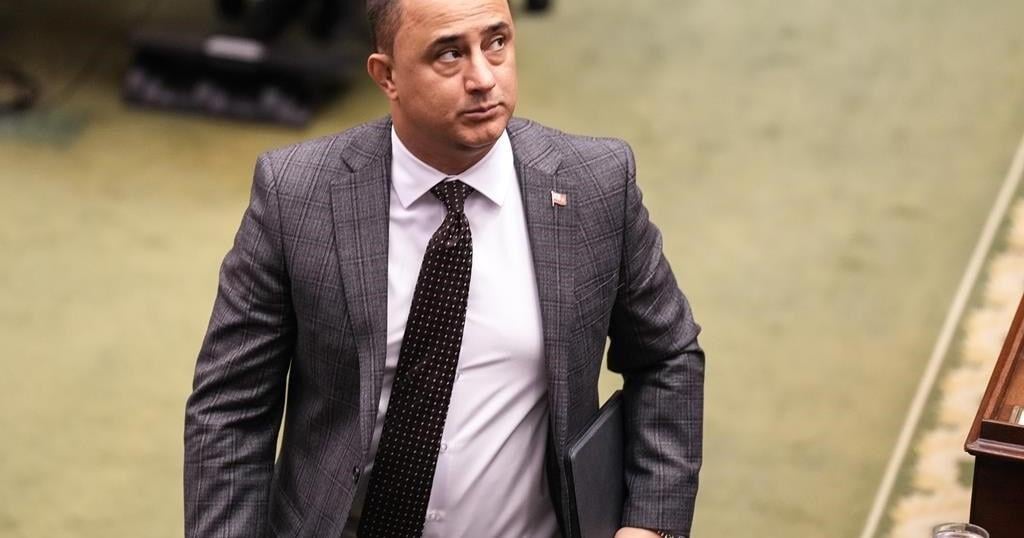TORONTO – Ontario’s progress in giving children with autism access to government-funded core therapy has slowed so significantly that at times the number of kids enrolled is actually declining, despite a ballooning wait-list, according to documents obtained by The Canadian Press.
Progress updates on the Ontario Autism Program show a widening gulf between the number of children seeking services — 73,031 at the time of the most recent data from the end of June — and the number receiving funding for key therapies, which was at that time 14,113.
The enrolment and funding for core services, which includes applied behaviour analysis and speech-language pathology, has been slowing over the past year, but information obtained through a freedom-of-information request shows there are now weeks in which the number of kids being served actually decreases.
The ministry tracks progress every two weeks, and from May 29 to June 12, for example, the number of children with an active funding agreement for core services declined by 70. In that same time period, 491 more children were added to the waiting list for services.
“There’s going to be a reckoning,” said Alina Cameron, president of the Ontario Autism Coalition. “You’re going to have the community clue in on this, and they’re going to be very upset, because what this means is that that estimated wait time of five to seven years just got longer.”
The wait time is an autism coalition estimate, not a government figure. Families on the wait-list are not given an indication of how long their wait will be, though many have asked, as they try to calculate how long they can afford to pay out-of-pocket for therapy in the meantime.
A ministry spokesperson said decreases in the number of children enrolled in core clinical services “could be due to more children/youth exiting the program (due to aging out or other reasons) than enrolling … in the two-week period.”
Jaime Santana, president of ONTABA, the association representing behaviour analysts, said the slow pace of enrolments into government-funded core services is also affecting the service providers. It leaves providers unable to build capacity, which in turn leaves some families with funding in hand but nowhere to spend it, he said.
“The slower that the (Ontario Autism Program) is moving, or the more bottlenecking that’s occurring, it does impact the clinician’s ability to expand services and to make services more available,” he said.
“You still have to be able to keep the lights on and when you don’t know how much funding is available, who’s going to get what funding when, it’s really hard to make those decisions about expansion or not.”
Documents previously obtained by The Canadian Press through the freedom-of-information process show that ministry officials have warned the program can only serve about 20,000 people in core services, and Cameron, of the Ontario Autism Coalition, said she believes that is what is behind the bottleneck.
“We think it’s because they hit the limitation of the funding envelope for the Ontario Autism Program,” she said.
The budget for this year is $720 million, which is more than double the level of funding under the previous Liberal government.
When the Progressive Conservatives scrapped the Liberal autism program in 2019 and introduced their own, there was a wait-list of 23,000 kids and about 10,000 kids were receiving needs-based therapy, according to the province’s Financial Accountability Office.
The new program introduced in 2019 was ultimately shelved due to backlash, then revamped, and got up and running in 2022 after several delays.
A key factor behind the current bottleneck may be the determination of needs process, Cameron said. It involves families spending up to four hours on a phone call with autism program administrators telling them about their child’s needs. That information is then used to assess how much funding they should get.
But the process repeats annually, and the new documents show that the proportion of reassessments being conducted in every two-week period is growing quickly.
From March 20 to April 3, about 28 per centof assessmentswere reassessments, and by the June 12 to June 26 time period the percentage had grown to more than 38 per cent — so, fewer than two-thirds of the assessments are being done in order to get new kids into therapy.
Both the autism coalition and ONTABA are pushing for the government to instead rely on assessments from the kids’ own therapists.
A spokesperson for the Ministry of Children, Community and Social Services did not say if Minister Michael Parsa was considering any changes.
“The determination of needs process is completed with each family on an annual basis to help ensure a child’s changing support needs are reflected over time,” Kristen Tedesco wrote in a statement.
The statement pointed to a few improvements the ministry has made in order to speed up the process, including implementing DocuSign and automated processes for reviewing expenses.
This report by The Canadian Press was first published Sept. 11, 2024.

























